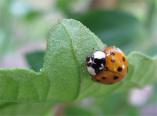It strikes me that most of the ‘progress’ towards which the western world has worked itself to exhaustion has been the quest for greater convenience, a word that is starting to sound like a warning rather than a goal.
And working against it, as I re-learn basic skills like making my own mayonnaise and pasta, and switch as far as possible to local, perishable raw ingredients – awkward as they are to chase down – begins to feel damned virtuous. I’m grateful to have the time to indulge my fancies in this way.
But it seems to me that convenience is a selfish value. Rarely, it seems, is anything described as convenient of universal long-term benefit: the convenience of the car has contributed to what will be catastrophic effects on us all. Disposable anything, from diapers to juice boxes to syringes, creates more burden on landfills, usually involves a lot of plastic, and pushes out of production the more durable versions of itself (those that involve tedious washing or maintenance before re-using). Those notorious standby switches on electrical devices await our whim with the remote control; round-the clock hot water tanks are ready for random 3 am baths; city planning makes it impossible to live in much of this continent without driving: all of it needlessly draining energy for the sake of making our lives easier, which has been our single-minded and undisputed collective mission.
When it comes to food, it’s becoming clear that convenience can be dangerous to your health. As Michael Pollan points out, food that has a long shelf life has a long shelf life because even pests and microbes don’t find it’s worth eating; the perishable aspects of foods that are removed to keep a food from spoiling are usually what holds the nutritional value (wheat germ, for example, stripped out of white flour; the fragile antioxidants in fresh foods destroyed by heat processing). Long-lived food substances constructed in the lab are not comparable in any nutritional way to their traditional counterparts. As Pollan says, we co-evolved with the carrot for a reason, and it wasn’t so that we could extract beta-carotene and conclude that was the only reason for eating one. Eating badly and popping vitamin supplements turns out not to be the same as eating well over a lifetime either.
One convenience issue I’ve been mulling over as I re-heat my home-made meals using a microwave is whether microwaves are a bad or a good thing? While I am open to the idea they are a bad thing, I have not seen proof of that. And while I may be vaguely uncomfortable with blasting my meal for 3 minutes in the microwave, I like less the idea of heating it for half an hour in an otherwise empty gas oven or feeble toaster oven.
The main arguments against microwaves, that they damage the foods they heat, appear to be based on ‘scientific research’ done by a Swiss agronomist (though usually described as a scientist or a food scientist), Hans-Ulrich Hertel (often misspelled as Hans-Urich Hertel).
My willingness to have faith in Hertel’s findings is hampered by the fact they are only reported in blogs, alternative health sites of unknown credentials, and illiterate online ravings, all of which fail to mention they were based on a study of 8 people.
My nascent faith was further shaken by one item that named Hertel as the head of an anti-cell phone organisation called the ”World Foundation for Natural Science” (check out the website!) and another that says he was convicted in Swiss courts of making anti-semitic statements around the same time he won the right to publish his ‘research’ on freedom of speech grounds.
The Skeptic published an article about microwaves in 2003 that put things into perspective, and (Australian) ABC’s Dr Karl debunked Hertel’s evidence again in 2006. But I’m ready to hear about more credible studies that show the dangers of this particular form of convenience.









